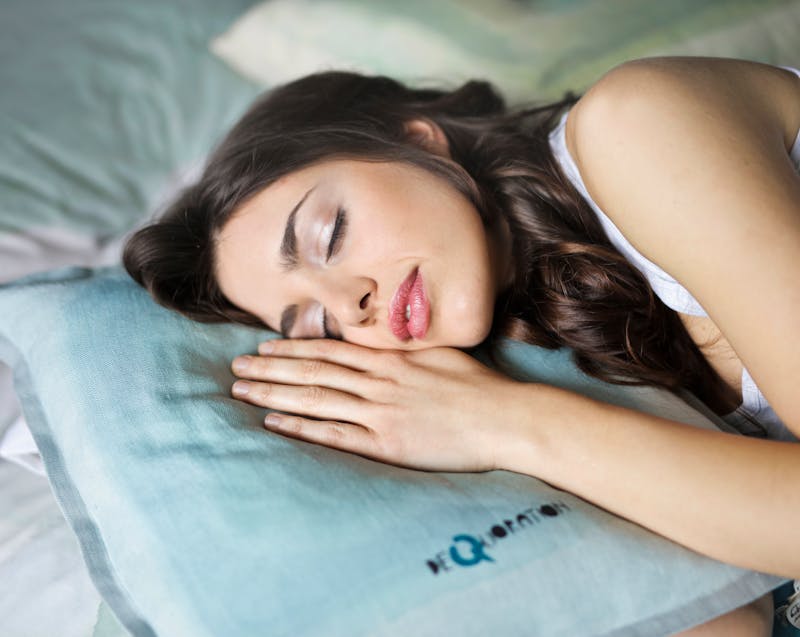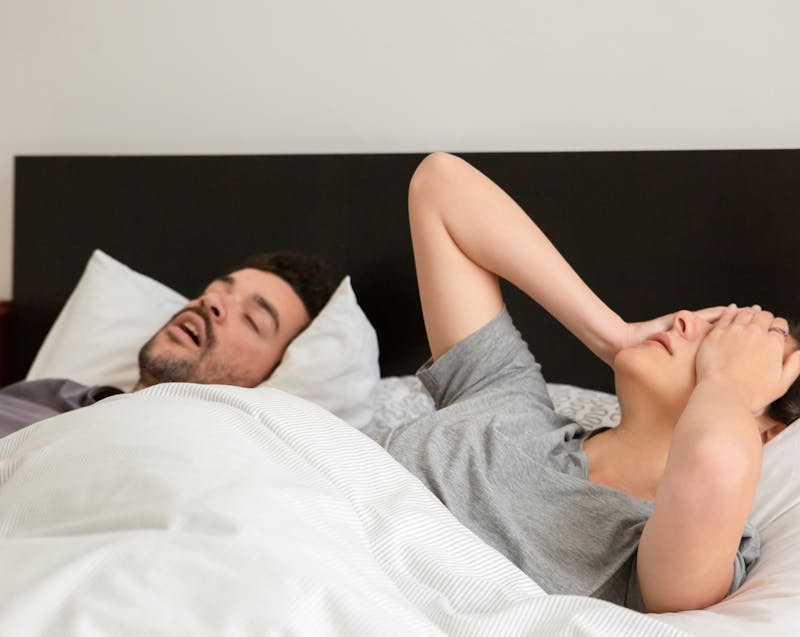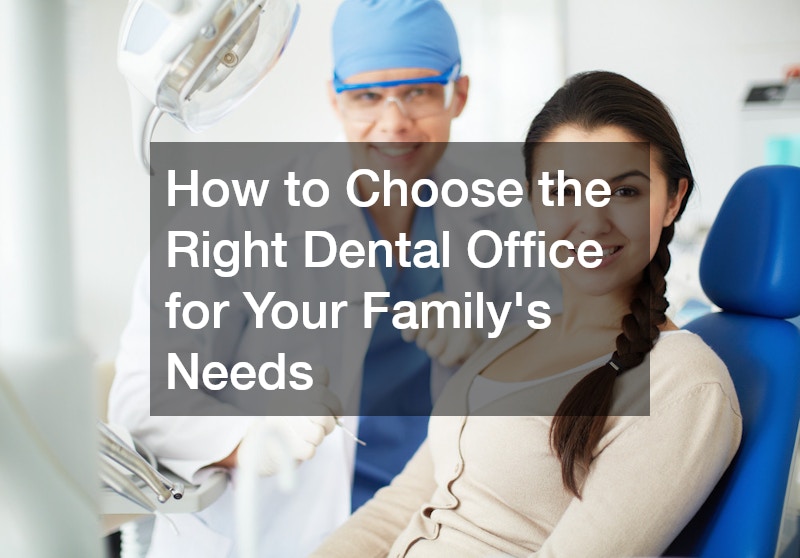
- Sleep apnea disrupts deep, restorative sleep and leads to serious health risks like heart disease, diabetes, and fatigue.
- A dentist who provides dental appliances for sleep apnea offers a non-invasive, effective alternative to CPAP and surgery.
- Dental appliances keep the airway open, reduce snoring, and improve sleep quality, leading to better energy and focus.
- These oral devices are comfortable, travel-friendly, and often result in higher patient compliance than CPAP machines.
- Ideal candidates include patients who suffer from mild to moderate obstructive sleep apnea.
- Potential side effects are mild and manageable with proper dentist-supervised adjustments and follow-up care.
- Combining a dental appliance with healthy lifestyle habits—like weight management, good sleep hygiene, and exercise—maximizes results.
Millions of people struggle with sleep apnea, often without realizing how deeply it affects their overall health and daily lives. Interrupted breathing during sleep not only causes restless nights but also leads to serious health risks if left untreated. Many individuals turn to CPAP machines or surgery, but these options can feel overwhelming, uncomfortable, or impractical for long-term use.
Fortunately, a dentist who provides dental appliances for sleep apnea offers a highly effective, non-invasive alternative that can transform sleep quality. These oral devices, often custom-made, help keep the airway open during sleep, reducing apnea episodes and snoring. For many patients, they bring back restful, restorative nights and better energy levels throughout the day.
This article explores how dental appliances work, their benefits, candidacy requirements, limitations, and the step-by-step process of getting started. You will also learn how combining a dental appliance with lifestyle changes can maximize results and improve overall well-being.
Understanding Sleep Apnea
Sleep apnea is more than just loud snoring—it is a chronic condition that interrupts normal breathing during sleep. Each pause in breathing can last from a few seconds to over a minute, sometimes occurring dozens or even hundreds of times per night.
The types of sleep apnea include Central Sleep Apnea (CSA), Obstructive Sleep Apnea (OSA), and Complex or Mixed Sleep Apnea.
Causes and Risk Factors
- Excess body weight, which increases throat tissue.
- Jaw or tongue positioning that narrows the airway.
- Aging, which reduces muscle tone.
- Smoking and alcohol use, which relax airway muscles.
- Family history or genetic predisposition.
Common Symptoms
- Loud, chronic snoring.
- Morning headaches or dry mouth.
- Daytime fatigue and difficulty concentrating.
- Mood changes, irritability, or depression.
- Waking up gasping for air or choking.
Sleep apnea reduces sleep quality because it disrupts deep sleep stages like REM. Without restorative rest, the body cannot fully recover, leading to long-term health issues.
The Impact of Poor Sleep on Health and Fitness

Quality sleep is essential for mental clarity, immune strength, and physical performance. When sleep apnea goes untreated, the effects ripple into nearly every aspect of life.
- Cognitive Effects: Difficulty focusing, memory problems, and decreased productivity.
- Cardiovascular Risks: Elevated blood pressure, increased risk of heart disease, and stroke.
- Metabolic Issues: Higher likelihood of insulin resistance and type 2 diabetes.
- Fitness and Performance: Reduced stamina, slower recovery from workouts, and decreased motivation for exercise.
By addressing sleep apnea through effective treatment, individuals can not only improve rest but also safeguard long-term health and enhance daily energy levels.
Traditional Treatments for Sleep Apnea
While many people turn to conventional treatments, each has its own strengths and limitations.
- Lifestyle Changes: Losing weight, quitting smoking, reducing alcohol intake, and positional therapy (avoiding sleeping on the back).
- CPAP Machines: Continuous Positive Airway Pressure devices are highly effective but often uncomfortable, noisy, and inconvenient for travel. Compliance rates can be low because some patients find it difficult to wear the mask consistently.
- Surgical Options: Procedures can reposition the jaw, remove excess tissue, or implant devices. While sometimes effective, they are invasive, costly, and require recovery time.
For those who cannot tolerate CPAP or are hesitant about surgery, a dentist who provides dental appliances for sleep apnea offers a practical and patient-friendly solution.
What Are Dental Appliances for Sleep Apnea?
Dental appliances for sleep apnea are specially designed oral devices created to be worn at night. Unlike a sports mouthguard or orthodontic retainer, these appliances are customized by a dentist to fit comfortably in the mouth and gently reposition the jaw or tongue. Their purpose is to help keep the airway open during sleep, reducing interruptions in breathing and minimizing snoring.
How They Work
- Reposition the lower jaw slightly forward.
- Prevent the tongue from collapsing backward.
- Keep the airway open to reduce snoring and apnea episodes.
Types of Dental Appliances
- Mandibular Advancement Devices (MADs): Move the jaw forward to keep airways clear.
- Tongue Retaining Devices (TRDs): Hold the tongue in place to prevent airway obstruction.
Custom vs. Over-the-Counter
Over-the-counter versions exist, but they are often less effective and may cause discomfort. A dentist who offers oral appliance therapy ensures the device is custom-fitted, comfortable, and monitored for long-term success.
Benefits of Dental Appliances for Sleep Apnea
Choosing a dental appliance under professional care comes with a range of advantages.
Improved Sleep Quality
- Fewer interruptions in breathing.
- Increased time in deep sleep and REM stages.
- Reduced or eliminated snoring.
Comfort and Convenience
- Smaller and quieter than CPAP machines.
- Easy to pack and travel with.
- No need for electricity or bulky equipment.
Better Compliance Rates
Because the devices are simple and comfortable, patients are more likely to use them consistently compared to CPAP.
Enhanced Daytime Functioning
- Increased energy levels and reduced fatigue.
- Improved concentration, mood, and productivity.
Long-Term Health Benefits
- Lower risk of cardiovascular disease.
- Improved blood sugar regulation.
- Better weight management due to normalized metabolism.
Cost-Effectiveness
Although the initial investment may seem high, fewer supplies and maintenance costs compared to CPAP can make dental appliances more affordable over time.
Who Is a Good Candidate for a Dental Appliance?
Not everyone with sleep apnea is an ideal candidate, but many can benefit greatly from this approach.
Ideal Candidates
- Individuals who suffer from mild to moderate obstructive sleep apnea.
- Patients who cannot tolerate or refuse CPAP therapy.
- People with primary snoring issues not linked to severe apnea.
Considerations
- Must have healthy teeth and gums.
- Jaw alignment should allow for repositioning.
- Patients with severe sleep apnea may require additional or alternative treatment.
A dentist who provides dental appliances for sleep apnea typically works alongside sleep physicians to ensure the right diagnosis and treatment plan.
Possible Limitations and Side Effects
Although highly effective, dental appliances do have some potential drawbacks.
- Temporary jaw discomfort or soreness.
- Dry mouth or increased saliva production.
- Minor tooth movement or bite changes over long-term use.
- Not always suitable for severe sleep apnea cases.
Most side effects are mild and can be managed with regular adjustments and follow-ups.
How to Get Started with a Dental Appliance
The process of obtaining a dental appliance for sleep apnea involves several key steps.
- Sleep Study
- Confirm the diagnosis and determine the severity of apnea.
- Conducted at a sleep center or through at-home testing.
- Dental Evaluation
- Dentist checks overall oral health, bite alignment, and jaw condition.
- Impressions or digital scans are taken for custom fitting.
- Fitting the Appliance
- The dentist ensures proper fit and comfort.
- Adjustments are made to optimize effectiveness.
- Follow-Up Care
- Regular visits to monitor progress and make refinements.
- Ongoing collaboration with a sleep physician may be recommended.
- Integration with Lifestyle Changes
- Weight loss, exercise, and avoiding alcohol can enhance results.
Lifestyle Tips to Maximize Sleep Quality Alongside Dental Appliance Use

Even with an oral device, daily habits play a crucial role in sleep health.
- Practice Good Sleep Hygiene
- Go to bed at the same time every night.
- Create a dark, quiet, and cool sleeping environment.
- Avoid screens and caffeine before bedtime.
- Maintain a Healthy Weight
- Reducing excess fat around the neck can minimize airway obstruction.
- A balanced diet and regular exercise are essential.
- Avoid Alcohol and Sedatives
- These relax throat muscles and worsen apnea symptoms.
- Use Positional Therapy
- Sleeping on your side can help keep your airways open.
- Incorporate Relaxation Techniques
- Deep breathing exercises, yoga, or meditation before bed can promote restful sleep.
By combining a dental appliance with healthy lifestyle habits, patients often experience even greater improvements in sleep quality and daily vitality.
Conclusion
Sleep apnea is a health condition that affects much more than nightly rest—it influences long-term wellness, daily performance, and even physical fitness. While CPAP machines and surgical options are widely used, many patients search for treatments that are easier to manage and less invasive. In these cases, a dentist who provides dental appliances for sleep apnea may offer an effective alternative that can significantly improve sleep and overall well-being.
Oral appliances designed for sleep apnea are compact, discreet, and simple to travel with, making them a practical choice for many individuals. They are especially effective for those who are dealing with mild to moderate obstructive sleep apnea, helping to reduce breathing disruptions and snoring. Beyond improving nighttime rest, these devices support better energy, sharper concentration, and a healthier body. With expert fitting, regular check-ins, and positive lifestyle adjustments, dental appliances can give patients the opportunity to experience consistent, restorative sleep and more active, productive days.
If you or someone you know is experiencing symptoms of sleep apnea, consulting with a dental professional trained in oral appliance therapy could be the first step toward healthier sleep and a better quality of life.

